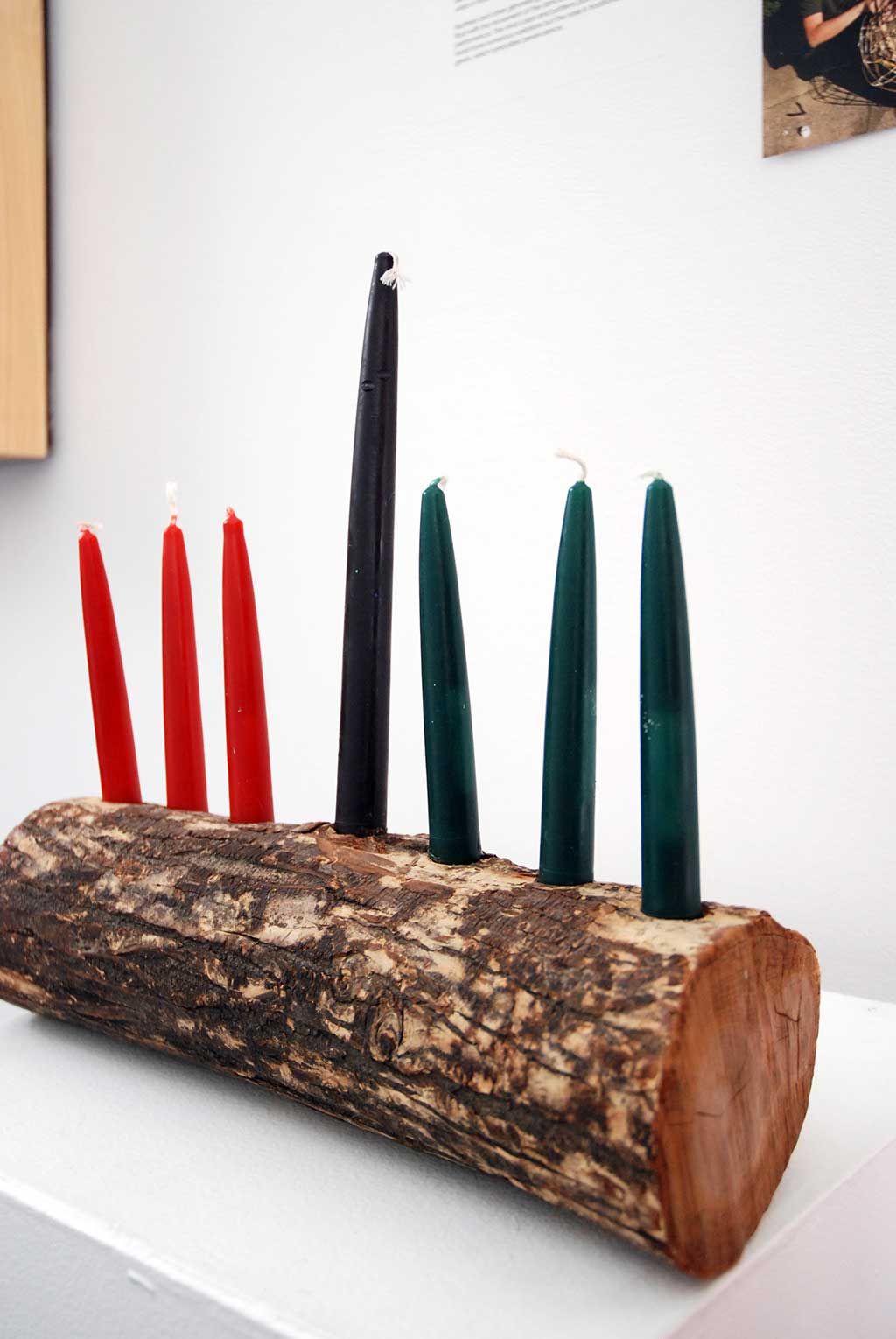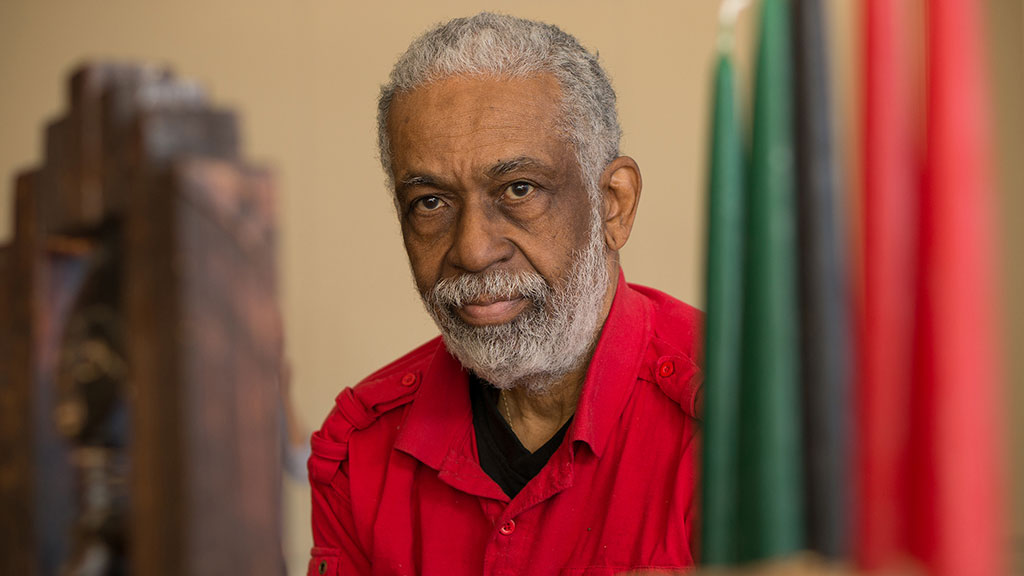Babatunde Graves
In Chicago, artist Babatunde has been making kinaras, the candleholders for Kwanzaa celebrations, for more than forty years. Based on African harvest celebrations, Kwanzaa is a time of self-affirmation and reflection for African American communities and families. At Chicago State University, we join with people of all ages in the music and dancing of the Kwanzaa festivities, and are given insights into the meaning of the ceremonial table and the traditions of the seven days of Kwanzaa. As Babatunde explains, “Kwanzaa is a time where we ask what can we do this year that we didn’t do last year? Kwanzaa honors people coming together to make a better life.”
Kwanzaa is an African American tradition begun in 1966 celebrating family, community and culture. Based on African harvest festivals and observed from December 26 to January 1, it offers 7 days of self-affirmation and thoughtful reflection for African-American families culminating in feasting and gift-giving. The tenets are Unity, Self-Determination, Collective Work and Responsibility, Cooperative Economics, Purpose, Creativity and Faith.

